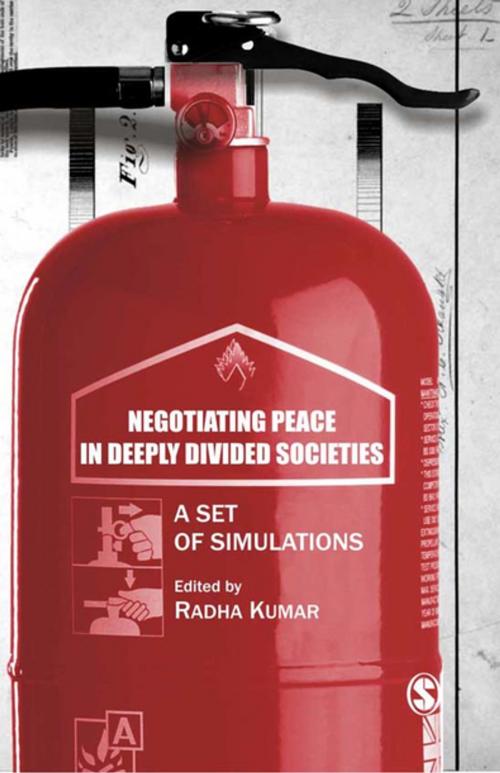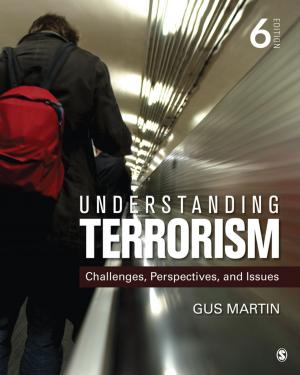Negotiating Peace in Deeply Divided Societies
A Set of Simulations
Nonfiction, Social & Cultural Studies, Political Science, International, Treaties, Reference & Language, Reference| Author: | ISBN: | 9789352802036 | |
| Publisher: | SAGE Publications | Publication: | April 22, 2009 |
| Imprint: | Sage Publications Pvt. Ltd | Language: | English |
| Author: | |
| ISBN: | 9789352802036 |
| Publisher: | SAGE Publications |
| Publication: | April 22, 2009 |
| Imprint: | Sage Publications Pvt. Ltd |
| Language: | English |
This first-of-its-kind book approaches peacemaking in a unique way. It makes an innovative application of simulation—as training exercises for peacemaking—and puts readers in the role of key actors during conflict and conflict resolution processes, giving them a nuanced understanding of the risk, opportunity and cost of making peace.
These simulations are also aimed at helping would-be negotiators and/or mediators prepare better. The six exercises included in the book are mostly based on actual or potential negotiations in ongoing peace processes. They cover the following aspects of negotiating peace in deeply divided societies: preventing escalation of the conflict (also called conflict management), initiating Confidence Building Measures (CBMs) that pave the way for political resolution, addressing the root causes of conflict, arriving at a comprehensive agreement to end the conflict and post-conflict peace-building.
As a set of exercises, the six simulations in this book will be useful for administrators, negotiators and peacekeeping forces. This book will also be an important source of information for students and academics studying Politics, International Relations and Peace Studies.
This first-of-its-kind book approaches peacemaking in a unique way. It makes an innovative application of simulation—as training exercises for peacemaking—and puts readers in the role of key actors during conflict and conflict resolution processes, giving them a nuanced understanding of the risk, opportunity and cost of making peace.
These simulations are also aimed at helping would-be negotiators and/or mediators prepare better. The six exercises included in the book are mostly based on actual or potential negotiations in ongoing peace processes. They cover the following aspects of negotiating peace in deeply divided societies: preventing escalation of the conflict (also called conflict management), initiating Confidence Building Measures (CBMs) that pave the way for political resolution, addressing the root causes of conflict, arriving at a comprehensive agreement to end the conflict and post-conflict peace-building.
As a set of exercises, the six simulations in this book will be useful for administrators, negotiators and peacekeeping forces. This book will also be an important source of information for students and academics studying Politics, International Relations and Peace Studies.















